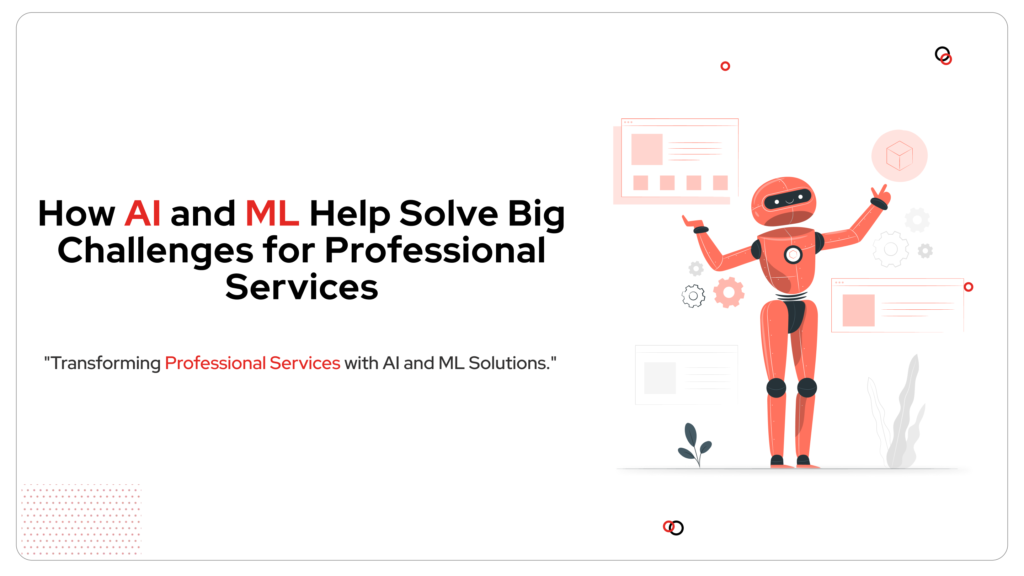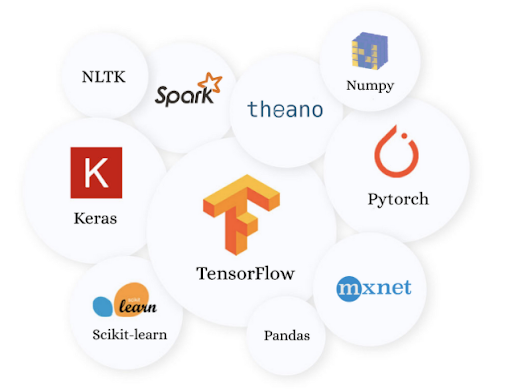
The professional services industry thrives on expertise, efficiency, and delivering exceptional client value. But in today’s data-driven world, staying ahead requires leveraging cutting-edge technologies. Artificial intelligence (AI) and machine learning algorithms are rapidly transforming how professional services firms operate, tackling big challenges and unlocking new possibilities.
The Big Challenges: Friction in the Professional Services Workflow
- Resource Allocation
Matching the right talent with the right project is crucial. Manual scheduling and resource allocation processes can be time-consuming and lead to mismatches.
- Project Management
Keeping projects on track, within budget, and on time can be a constant struggle. Scope creep, inaccurate forecasting, and communication gaps often create roadblocks.
- Data Overload
Professional services firms generate vast amounts of data. Extracting valuable insights from this data deluge can be overwhelming with traditional methods.
- Client Retention
Understanding client needs and delivering exceptional service is paramount. Traditional methods for client relationship management can be reactive and lack a data-driven approach.

AI and ML to the Rescue
- Enhanced Resource Management
Machine learning algorithms can analyze vast data on employee skills, experience, and project requirements. This enables intelligent talent matching, optimizing resource allocation, and ensuring the best fit for every project.
- Predictive Project Management
AI can analyze historical project data and industry trends to predict project timelines, resource needs, and potential risks. This allows for proactive management, early identification of issues, and course correction as needed.
- Data-Driven Insights
AI and Machine Learning Algorithms can unlock valuable insights from complex datasets. Sentiment analysis of client feedback, competitor analysis through web scraping, and risk prediction based on industry trends are just a few examples. These insights can inform strategic decision-making, improve client service, and identify new business opportunities.
- Intelligent Client Relationship Management (CRM)
AI-powered CRM systems can automate repetitive tasks, personalize client interactions, and predict client needs. Chatbots can provide 24/7 support, while recommendation engines suggest relevant services based on client profiles and past projects.
Deep Learning Techniques and Neural Network Applications in Action
Deep learning, a subset of machine learning, employs intricate neural network architectures inspired by the structure of the human brain. Notably, techniques such as convolutional neural networks (CNNs) are adept at image recognition tasks, enabling businesses in architecture, engineering, and design to automate processes such as document analysis and verification of building code compliance. These networks possess the capability to process vast datasets, uncovering nuanced relationships and patterns.
In the realm of Natural Language Processing (NLP), deep learning techniques can sift through extensive legal documents and financial reports, streamlining tasks such as contract review and fraud detection within accounting firms. For engineering enterprises, deep learning techniques facilitate the analysis of intricate blueprints, enabling the detection of potential design flaws for proactive mitigation measures.
Neural networks, designed to emulate the functioning of the human brain, offer enhanced insights across professional services. By scrutinizing legal documents and contracts, these networks can pinpoint crucial clauses, risks, and inconsistencies, thereby saving time and resources for legal professionals.
In the financial sector, neural network applications aid in client risk assessment, enabling more accurate profiling and leading to improved decision-making in areas such as loan approvals and risk management. Consulting firms benefit from neural network applications’ capacity to analyze market data and predict future trends, thereby offering clients strategic advice informed by data-driven insights.
Data Science Tools for Success
The power of AI and machine learning algorithms hinges on the quality and availability of data. Data science tools play a vital role in data preparation, analysis, and model building. Here are some key tools used by professional services firms:
- Data Cleaning and Preprocessing Tools
Tools like OpenRefine and Trifacta Wrangler help clean, format, and organize data for optimal use in AI and ML models.
- Machine Learning Libraries
Libraries like TensorFlow and PyTorch provide building blocks for creating and training machine learning models using machine learning algorithms.
- Data Visualization Tools
Tools like Tableau and Power BI allow professionals to present complex data insights in a clear and actionable way.

The Human-Machine Collaboration Advantage
It’s important to remember that AI and ML are not meant to replace human expertise. Instead, they are powerful tools that augment human capabilities. Professional services firms that leverage AI and ML effectively can:
- Empower Employees
AI automates tedious tasks, freeing up professionals to focus on higher-value activities like client strategy and creative problem-solving.
- Improve Client Service
AI-powered insights allow for more personalized client interactions and proactive service delivery, leading to higher satisfaction and client retention.
- Improved Decision-Making
Data-driven insights from AI and machine learning algorithms empower professionals to make informed decisions and guide clients.
- Reduced Costs
Automating tasks and optimizing processes leads to significant cost savings for firms.
The Future of Professional Services: Powered by AI and ML
The future of professional services is being revolutionized by AI and ML. These technologies streamline operations, enhance decision-making, and optimize resource allocation. AI-driven analytics offer deep insights, enabling predictive strategies and personalized services. Machine learning algorithms automate repetitive tasks, freeing up time for innovation and complex problem-solving. By harnessing AI and ML, professional services are poised for unprecedented efficiency, agility, and client satisfaction in the evolving digital landscape.